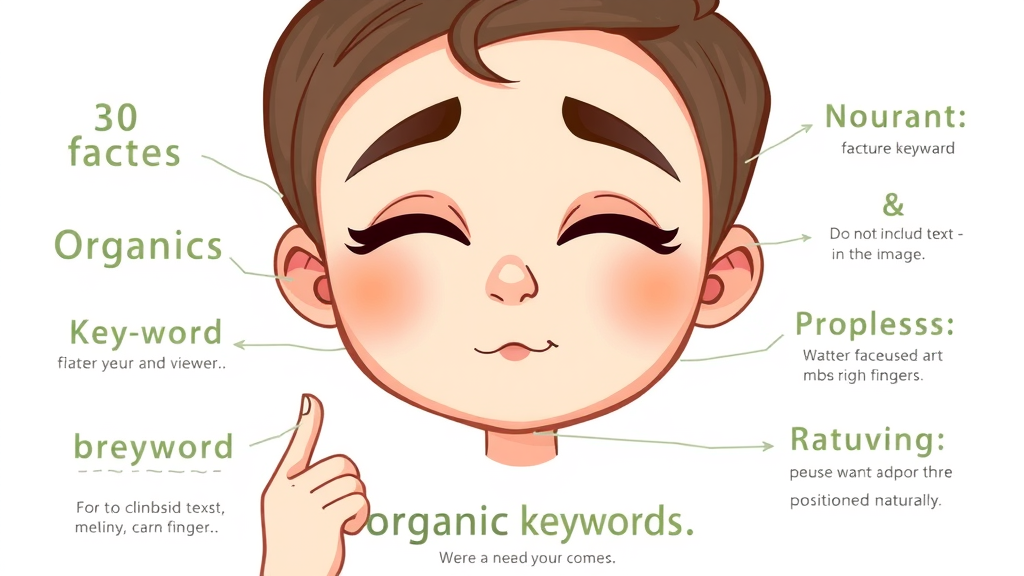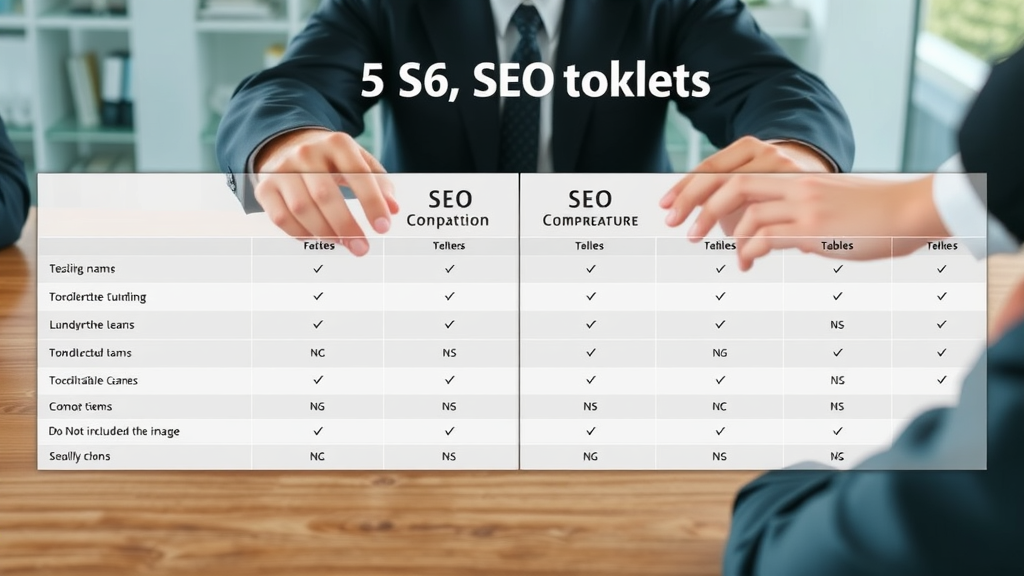Are you getting the most out of your marketing efforts? The choice between organic keywords and paid keywords can significantly impact your ROI. Discover how understanding these can transform your marketing strategy and lead to success.
Exploring Organic Keywords and Paid Keywords
The digital marketing landscape is constantly evolving, and the role of keywords is critical in driving success. The main dilemma businesses face is choosing between organic keywords and paid keywords . This choice can impact your marketing outcomes and how efficiently you reach your target audience.
Defining Organic Keywords
Organic keywords are the naturally occurring search terms that users enter into search engines to find relevant information. These keywords form the backbone of search engine optimization (SEO) efforts, allowing businesses to increase organic search visibility without the cost of paid ads . By targeting the right organic keywords, businesses can improve their search engine results , driving long-term traffic to their site and enhancing the overall user experience .

Understanding Paid Keywords
In contrast, paid keywords are utilized in advertising platforms like Google Ads to achieve instant visibility. Businesses bid on these keywords to appear at the top of the search engine results page (SERP) . This strategy offers immediate visibility and can be highly effective in short-term campaigns aimed at specific objectives.

What Does ROI Mean in Digital Marketing?
Return on Investment (ROI) represents the profitability of your marketing efforts. In the realm of digital marketing, assessing the ROI involves understanding the balance between the costs of paid strategies and the potential returns from free, organic strategies. An effective marketing campaign aims to optimize ROI by strategically leveraging both organic and paid keywords.
Comparing Organic Search and Paid Search
Both organic and paid searches play distinct roles within a digital marketing strategy . Understanding these roles aids in the decision-making process, ensuring maximum reach and efficiency.
What is Organic Search?
Organic search refers to the non-paid search results that appear on a search engine results page . By effectively optimizing for organic search, businesses can achieve a sustained presence on SERP without ongoing ad expenses. This organic presence enhances trust and credibility with users, contributing to a superior user experience .
How Does Paid Search Work?
Paid search, often known as paid ads or paid search campaigns , involves paying to have search results display at the top of search engine pages. Unlike organic searches that depend on keyword optimization and content quality, paid searches guarantee visibility through ad campaigns that target specific keywords. This approach allows for precise control over targeting and budget allocation.

Advantages of Organic Keywords over Paid Ads
There are distinct benefits to focusing on organic keywords compared to paid ads , particularly concerning cost-efficiency and sustainability.
Cost-Effectiveness of Organic Keywords
Organic keywords provide a cost-effective method for businesses to boost their online presence. While keyword research and search engine optimization require initial investment, the long-term returns are substantial. Unlike paid campaigns that require ongoing funds, organic strategies benefit from steady engagement.

Long-Term Benefits of Organic Search
The advantage of organic search extends beyond cost savings. Organic search results carry credibility that paid ads may lack. When content ranks naturally, it signifies relevance and trustworthiness to users. This trust translates into sustained traffic and potentially higher conversion rates, essential for a lasting digital presence.
Advantages of Paid Keywords in Digital Marketing
Despite their costs, paid keywords offer advantages that can significantly amplify a marketing strategy's reach.
Immediate Visibility Through Paid Ads
The most significant advantage of paid keywords is their ability to provide instant visibility and results. Through tailored ad campaigns , businesses can rapidly connect with their target audience . This is particularly beneficial during promotions or product launches requiring quick traction.

Increased Control with Paid Campaigns
Paid keyword campaigns offer increased control over timing, positioning, and audience targeting. This allows marketers to finely tune their marketing campaigns, reaching specific demographics at optimal times. This level of control increases the efficiency of marketing efforts, delivering a calculated return on the investment.
Integrating Paid and Organic Strategies for Maximum ROI
The real power of digital marketing lies in effectively integrating both paid and organic strategies. By doing so, businesses can leverage the strengths of each to maximize ROI.
Synergy Between Paid and Organic Search
By aligning efforts in paid and organic search , companies can achieve a synergy that enhances overall performance. This combined strategy ensures consistent message delivery, enhances brand visibility, and boosts search engine rankings.

Effective Strategies for Combining Approaches
To effectively integrate paid and organic strategies, businesses should focus on identifying complementary keywords for each approach. Investing in comprehensive keyword research and leveraging analytics helps tailor these strategies to specific business goals, ensuring the maximum return on investment.
What You'll Learn in This Comprehensive Guide
This guide aims to provide a detailed understanding and actionable insights into maximizing ROI through strategic use of organic and paid keywords. Below are the key learnings outlined:
Understanding Core Differences
By distinguishing the core differences between organic and paid keywords, businesses can efficiently allocate resources to the most impactful strategies.
Aligning Strategies with Marketing Goals
Tailoring your marketing strategy to align with business goals is essential. This involves understanding how each keyword type influences various stages of the sales funnel.
Key Takeaways from Comparing Organic and Paid Keywords
The comparative analysis of organic and paid keywords yields several insights that can drive your marketing strategies.
Summarizing the Benefits and Drawbacks
While both organic and paid keywords possess unique advantages, their combined use often offers the highest ROI. Organic keywords provide long-term benefits at a lower cost, whereas paid keywords ensure quick, measurable results.

Practical Tips for Implementation
When implementing these strategies, focus on thorough keyword research and constant monitoring of performance metrics to adjust strategies in real-time, ensuring the optimal balance between paid and organic efforts.
Quotes from Industry Experts
Gain insights from industry leaders about the effectiveness of both paid and organic search strategies.
Insights on Paid and Organic Search
“Understanding how paid and organic funnels intersect can significantly maximize marketing ROI. For sustainable results, utilize the strengths of both.” — Jane Doe, SEO Expert

People Also Ask: Clarifying Common Questions
What is the difference between organic and paid keywords?
Organic keywords are free and used for improved search engine results through optimization techniques, whereas paid keywords involve costs for immediate visibility through ads.
What are organic keywords?
These are terms naturally sought by users in search engines, helping enhance a site’s rankings without incurring fees.
Is organic better than paid?
Both have their merits; organic offers long-term benefits and cost-savings, while paid provides quick, measurable outcomes.
What is the difference between organic and paid Google?
Organic results are derived from SEO without direct costs, while paid Google ads require budgets for immediate placement in search listings.
FAQs on Organic vs Paid Keywords
Frequently Asked Questions Explored
Dive into common inquiries about the roles and impacts of organic and paid keywords within digital marketing, and learn how they affect user engagement and ROI.
Conclusion: Making Informed Decisions for Your Marketing Campaign
Final Thoughts on Choosing Between Organic and Paid Strategies
By effectively leveraging both organic and paid keyword strategies, businesses can optimize their marketing campaigns, ensuring personalized reach and balanced budget utilization.
 Add Row
Add Row  Add
Add 




Write A Comment